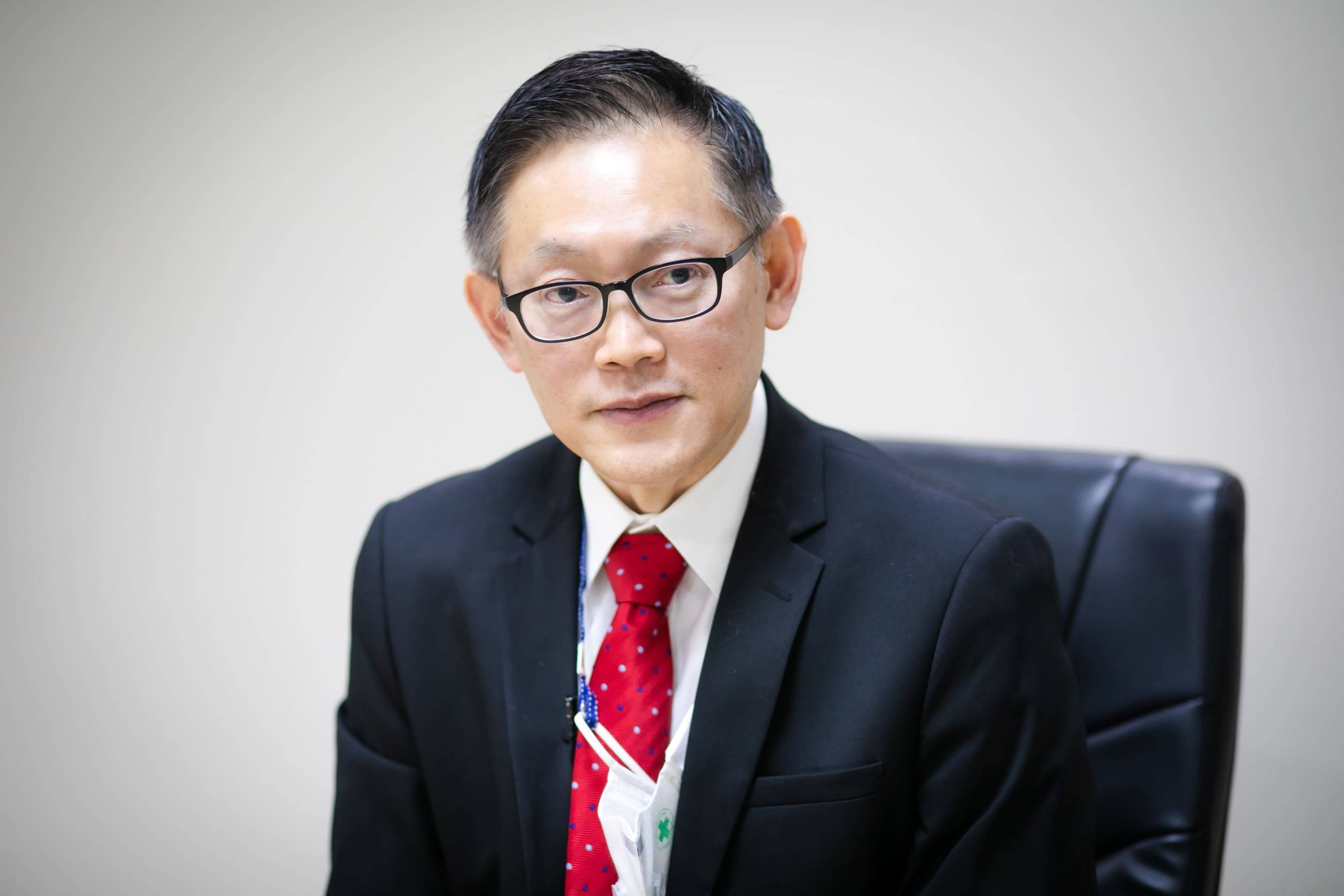
- Home
- DescriptionNews
Public-private partnership is essential for fighting the pandemic

Public-private partnership is essential for fighting the pandemic.
The new emerging phase of COVID-19 in Thailand exposes the gap in its capital's health system as much as reflects the indispensable role of the private sector to fill such gap.
For over two weeks, more than 2,000 new cases are reported in Thailand daily. More than half of the confirmed cases concentrate in Bangkok and metropolitan, where health authorities discovered new clusters and high contagious UK strain in early April.
It results in the hike of demands for hospital beds and COVID-19 testing services.
Bangkok is one of the most challenging areas for us. Private hospitals dominate the capital's health system, differ from the provincial area, where public hospitals are the primary health providers.
Therefore, public hospitals and health authorities alone cannot fight the pandemic without engaging the private sector.
Bangkok is also an area with a high disparity in healthcare access. It is the home of wealthy and middle-class people who can afford high-quality care in private facilities.
However, there are also many vulnerable populations, including homeless people, migrant workers, prisoners, and poor people struggling to reach out to primary care. They rely on public health facilities, which provide free healthcare services under Universal Health Coverage (UHC) run by the Thai government.
In a normal situation, this disparity may not be felt as public health facilities can manage to serve the healthcare needs of people, including those who come from underserved communities.
But during the pandemic, public healthcare resources are getting tight by the rapid rising numbers of COVID-19 patients, who require isolation to prevent the spread of the disease. It's unavoidable to engage the private sector, including profit-making hospitals and hotels, which own resources necessary for the quest to fight the pandemic.
The National Health Security Office (NHSO) has collaborated with the private sector to run the Universal Coverage Scheme (UCS), one of three tax-funded healthcare schemes under Thai UHC. The other two are Social Security Scheme and Civil Servant Medical Benefits Scheme.
The schemes ensure healthcare access for more than 99% of Thai people, including free COVID-19 testing and treatment.
Many private hospitals have participated in the UHC by providing health services and emergency care to the schemes' beneficiaries, especially in Bangkok, where many private hospitals are located.
After the services are provided, managers of the three healthcare schemes, such as the NHSO, Social Security Office, and the Comptroller General's Department, will reimburse the service costs for health providers.
This existing public-private partnership gives us the advantage of tackling COVID-19 while closing the disparity gap in Bangkok.
Many private hospitals agree with the NHSO to provide medical care to COVID-19 patients regardless of their financial status and registered healthcare schemes.
Thanks to Private Hospital Association Thailand, led by its President Dr Chalerm Hanpanich, which plays a central role in public-private collaboration to ensure healthcare access for all.
To support the hospitals, the NHSO has recently amended its reimbursement regulation to improve hospitals' liquidity and their ability to cope better with the pandemic. Previously, the NHSO allowed healthcare providers to once a month submit claims for the costs of services provided to patients under the UCS. It has now changed to every 15 days.
Meanwhile, some hotel owners agree to turn their properties into temporary quarantine facilities, so-called "hospitel," to answer the high demand for hospital beds and isolation rooms in the recent outbreak. The NHSO covers the operational cost for them.
Thailand is not a unique case. The public-private partnership has benefited many countries in improving health systems and increasing the capacity to handle the pandemic.
Taiwan is one of the prominent examples. Its health system is dominated by private hospitals that work closely with the Taiwanese government under the National Health Insurance, a single-payer compulsory social insurance plan, by sharing data and driving health innovations to protect people from COVID-19.
Witness the benefits of public-private partnership, in 2019, the World Economic Forum hosted the UHC2030 Private Sector Constituency to bring together private sector actors and promote collaboration across them and with other partners outside their circle.
In September 2019, the UHC2030 Private Sector Constituency launched its statement on UHC ahead of the UN High-Level Meeting on UHC that year. It was highlighting how the private sector can work together with other stakeholders to achieve better health and well-being for all people at all ages, calling the governments to strengthen partnership with the private sector and encourage all players to progress towards UHC.
The private sector involves a wide variety of players, including health providers, insurance companies, health innovation developers, manufacturers and distributors of medicines and health products.
They can affect the health systems in many good ways. For example, hospitals can incorporate the UHC principles in their business model by offering high-quality and affordable healthcare. Innovation companies can create health products that improve people's lives and increase the efficiency of health workforces.
Despite the challenge from the pandemic, it shows the opportunities for the public and private players to work together to improve health systems and ensure people's good health.
The NHSO will continue strengthening the partnership with the private sector. We're aware that all players are essential in the health system.
Dr Jadej Thammatach-aree
Secretary-General of the National Health Security Office (NHSO)
18 May 2021
Secretary-General of the National Health Security Office (NHSO)
18 May 2021

